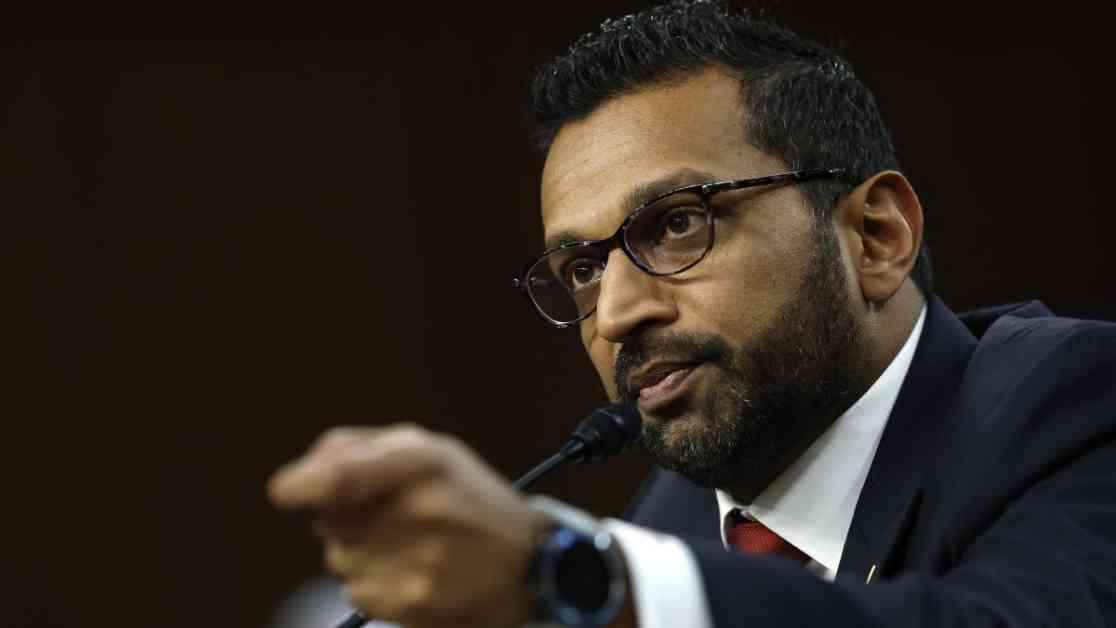Democratic Senator Dick Durbin has raised alarming accusations against Kash Patel, President Trump’s pick for FBI director. Patel allegedly orchestrated the firings of FBI officials in a covert manner, contradicting his prior testimony to the Senate Judiciary Committee. Durbin’s claims suggest potential perjury by Patel, raising concerns about his integrity and suitability for the top FBI position. Let’s delve deeper into this unfolding controversy surrounding Patel’s nomination and the implications it holds for the FBI and its workforce.
### Allegations of Covert Firings
The crux of the issue lies in Senator Durbin’s letter to the Justice Department Inspector General, where he accuses Patel of secretly directing the termination of career civil servants within the FBI. Durbin asserts that Patel, despite being a private citizen with no official government role, has been actively involved in pushing for dismissals at the FBI. The Senator’s claims are substantiated by whistleblowers who revealed Patel’s alleged instructions to key White House and Justice Department officials, indicating a coordinated effort to purge FBI personnel.
During a confirmation hearing, Patel denied any knowledge of plans to discipline or terminate FBI agents associated with Trump investigations. However, subsequent revelations suggest a contradictory narrative, casting doubt on Patel’s transparency and credibility. The emergence of contemporaneous notes referencing Patel’s desire for “movement at FBI” underscores the gravity of these allegations and the potential impact on the FBI’s operational dynamics.
### Consequences for FBI Workforce
The fallout from Patel’s purported actions extends beyond mere personnel changes to the core functioning of the FBI. Acting FBI Director Brian Driscoll’s memo detailing orders to remove senior FBI executives and identify staff involved in investigating the January 6 rioters underscores the disruptive nature of these developments. Driscoll’s resistance to directives for firing agents linked to sensitive cases highlights the internal tension within the FBI and the challenges posed by external influences on its operations.
Moreover, the looming specter of mass firings targeting probationary FBI employees raises concerns about workforce stability and operational continuity. The FBI Agents Association’s staunch defense of probationary agents underscores the significant investments in training and development that these individuals have undergone. The potential loss of skilled agents due to indiscriminate dismissals could have far-reaching repercussions on the FBI’s investigative capacity and long-term strategic objectives.
### Implications for Patel’s Nomination
As the Senate Judiciary Committee prepares to vote on Patel’s nomination, Senator Durbin’s accusations of perjury loom large over the confirmation process. The conflicting testimonies and evidence surrounding Patel’s involvement in FBI personnel decisions have cast a shadow of doubt on his suitability for the FBI director role. Republican senators’ steadfast support for Patel despite these allegations raises questions about the partisan dynamics at play and the broader implications for the FBI’s independence and integrity.
In conclusion, the unfolding controversy surrounding Kash Patel’s nomination as FBI director underscores the delicate balance between political interests and institutional autonomy within the FBI. The outcome of the Senate Judiciary Committee’s vote and the subsequent full Senate confirmation process will not only determine Patel’s fate but also shape the future trajectory of the FBI and its workforce. The need for transparency, accountability, and ethical leadership in such critical appointments cannot be overstated, given the pivotal role of the FBI in upholding the rule of law and safeguarding national security.


